In its strategic thinking, Israel has used the pretext of tensions with Hamas to strike the group’s infrastructure.
Israel and Hamas are once again locked in a conflict. Operation Protective Edge, as declared by Israel on July 8, has so far led to over 222 Palestinian deaths in the Gaza Strip. One Israeli has been killed with ten injured due to rocket fire from the Hamas-controlled territory. The United Nations (UN) estimates that 80% of Palestinian casualties are civilians.
Tensions were ignited by the kidnapping of three Israeli teenagers — Naftali Fraenkel, Gilad Shaer and Eyal Yifrah — in the West Bank on June 12. The Israeli government suspects the perpetrators were two local Hamas members from Hebron. The bodies of Fraenkel, Shaer and Yifrah were found on June 30 after weeks of intensive searches, raids and the arrests of hundreds of Palestinians, including Hamas members who were released during earlier prisoner swaps. On July 2, Palestinian teenager Mohammed Abu Khdeir was kidnapped and burned alive in what appears to be a revenge killing. Three right-wing Orthodox Israelis, said to be linked to the La Familia football fan club, have confessed to the crime.
Arrests and raids on Hamas members and infrastructure in the West Bank, which was followed by rocket fire from Gaza on southern Israel, led to airstrikes on Gaza and increased attacks from the Strip. For the first time in 20 months, Hamas claimed responsibility for firing rockets on July 7. On the following day, Operation Protective Edge began, with the stated goal of ending rocket fire from Gaza. Israeli officials stated that a temporary ground invasion was an option “to cut-off the strengthening of this terror army.” Khaled Meshal, the Hamas leader, has stressed the Palestinians’ right to self-defense.
On July 15, the Israeli cabinet agreed to an Egyptian proposal for a ceasefire, while Hamas officially rejected the proposal one day later. At the time of writing, both sides have since agreed to a five-hour humanitarian ceasefire requested by the UN.
Operation Protective Edge is the third Israeli military offensive on Gaza since the full withdrawal in 2005, with Operations Cast Lead and Pillar of Defense having been conducted in 2008-09 and 2012, respectively.
In April 2014, after the breakdown of US-sponsored peace talks, Fatah, the party headed by Mahmoud Abbas, and Hamas agreed to form a technocratic government based on a reconciliation agreement, which triggered Israeli condemnation. The recent Israeli military campaign must be seen in the context of this deal.
To make sense of the ongoing conflict and its implications, Fair Observer’s Manuel Langendorf talks to Hillel Schenker, the co-editor of the Palestine-Israel Journal and a former co-founder of the Peace Now movement.
Manuel Langendorf: How is the crisis affecting life in Tel Aviv?
Hillel Schenker: In Tel Aviv, the cultural and financial capital of Israel, life goes on more or less as usual, though at a lower intensity. Hamas may have targeted the city with its rocket attacks, a fact that attracts headlines around the world, but so far none of the rockets have actually caused any damage. All of the ones aimed at the city were intercepted and destroyed by the Iron Dome defense system. Cafes, restaurants and stores are all open, however, shop owners, taxi drivers and so on complain that their businesses have been affected because there are fewer potential customers on the streets. The situation is in sharp contrast to what happened in 1991, when Saddam Hussein aimed Scud missiles at Tel Aviv. At the time, there was a fear of non-conventional warheads, and a significant percentage of the city’s population left to more outlying locations for the duration of the Gulf War.
Those Israelis who are suffering from a disruption of their lives and deeper anxiety are the ones that live in the southern part of the country … However, the ones who are clearly suffering the most, in a totally disproportionate manner, are the people of Gaza, with over 222 people killed, many of them innocent women, children and other civilians.
When Hamas made an unprecedented announcement at 8pm on July 12 that the city would be targeted within an hour, Tel Avivians clearly felt a sense of anxiety. Even people like myself who have not sought cover in previous times headed down to shelters when the sirens rang. However, although seven rockets were launched in rapid succession at Tel Aviv, all were destroyed before they arrived at their destination. The general consensus in the media is that Hamas is looking for a “victory image,” with which to justify the suffering it is causing Gazans with repeated and relatively ineffectual rocket attacks against Israel — a fact that provides further justification for the Israeli government to continue its harsh and much more effective bombardment of Gaza.
So, Hamas has managed to fray the nerves of those Tel Avivians who are susceptible to such things, while others joke that they don’t need an alarm clock because the morning siren wakes them up.
Those Israelis who are suffering from a disruption of their lives and deeper anxiety are the ones that live in the southern part of the country, which is closer to Gaza and much more accessible to Hamas rockets — which there too have not been lethal; although, one Israeli was killed while providing aid to troops near the Gaza border. However, the ones who are clearly suffering the most, in a totally disproportionate manner, are the people of Gaza, with over 222 people killed, many of them innocent women, children and other civilians, property destroyed and an economy almost brought to a standstill.
Langendorf: To what extent is the current conflict a predictable continuation or an unexpected aberration? What is the strategic thinking behind Israel’s response?
Schenker: It is both a predictable development and an unexpected development. It is predictable because, as long as the conflict continues without a resolution, there will be outbursts of violence. However, it is also unexpected because just before the crisis began, Israelis were immersed in internal drama surrounding a new president; they were getting ready for the great global spectacle of the World Cup; and, at the political level, Israeli parties were maneuvering around the question of how to relate to the Israeli-Palestinian impasse after recent talks failed to produce any results.
Then suddenly, a series of unexpected events, the type that can always happen, took place in rapid succession. First, there was the kidnapping and killing of three Israeli teenagers in the West Bank, with two missing local Hamas members from Hebron as prime suspects. Then there was the horrific revenge killing of a Palestinian teenager from East Jerusalem by ultra-Orthodox Jewish extremists. And throughout this period, there was an Israel Defense Forces (IDF) campaign to arrest Hamas members and destroy their infrastructure in the West Bank, with nine Palestinians killed in the process. This was followed by IDF attacks on Hamas members in Gaza and Hamas rocket fire against Israeli civilians, which is where we are today.
The strategic thinking behind Israel’s response is that when there is an opportunity to strike at the Hamas military infrastructure — which is euphemistically called the “bank of targets” — it should be taken. Such plans are always ready in the military drawers and are constantly being updated.
The secondary element of Israeli strategic thinking is to try and undermine the Palestinian reconciliation agreement, and to force President Mahmoud Abbas and his colleagues to criticize Hamas and its actions.
Hamas has burned its bridges with most of its former allies. Whereas an Egypt headed by Mohammed Morsi and the Muslim Brotherhood was seen as a protector, the successor regime under Abdel-Fattah al-Sisi considers Hamas to be an enemy that stirs up trouble in the Sinai.
Of course, here we find a fundamental contradiction in the Israeli government’s policy under Prime Minister Binyamin Netanyahu. When it negotiates only with the Palestine Liberation Organization (PLO) and Fatah, the government says that Abbas represents half of the Palestinian people, claiming he does not have full authority to enter a binding agreement with Israel. Yet when a reconciliation agreement is arranged, based on Fatah’s principles — accepting all binding international treaties the PLO has signed, including recognition of the State of Israel and striving to make peace with it — Netanyahu’s government says it cannot negotiate with Abbas because he has accepted Hamas as a partner, whose charter calls for the elimination of Israel.
The final element of strategic thinking is to distract Israelis from the need to initiate a policy for peace, socioeconomic issues, and criticism of inept and corrupt leadership since those are things that are placed on hold at a time of crisis.
Langendorf: What is the impact of the international attention on Israel and Gaza? What is the role of media in this?
Schenker: The Israeli government believes this is an opportunity to hit Hamas precisely because international attention has been focused on other issues such as negotiations with Iran, the crisis in Ukraine, the post-election situation in Afghanistan, the conflicts in Syria and Iraq and, of course, there was the World Cup — the great bread and circus distraction. This appeared to be a unique opportunity to “get away with it.”
In addition, Hamas has burned its bridges with most of its former allies. Whereas an Egypt headed by Mohammed Morsi and the Muslim Brotherhood was seen as a protector, the successor regime under Abdel-Fattah al-Sisi considers Hamas to be an enemy that stirs up trouble in the Sinai. And Hamas’ former Iranian patrons were furious when it sided with Syrian rebels against Bashar al-Assad. Europe and the US do not have direct relations with Hamas, which they consider a terrorist organization, whereas Turkey does but currently has less than amicable relations with Israel. Qatar is also a patron of Hamas, but has a very troubled relationship with much of the Arab world.
However, as the number of Palestinian casualties rises in Gaza, we can already see more international efforts to broker a ceasefire, with the US, the UN, Egypt, Turkey, Qatar and Abbas all playing active roles.
Given President Sisi’s aspiration to reestablish the centrality of Egypt as a major player in regional politics, it is unsurprising that his government decided to promote and formulate a ceasefire proposal, which was submitted to Israel and Hamas. On the morning of July 15, the Israeli security cabinet accepted the proposal, with dissent coming only from Foreign Minister Avigdor Lieberman and Economy Minister Naftali Bennett, the leaders of the two most right-wing parties in the government. However, Hamas did not accept the proposal — apparently based on the perception that the initiative did not meet its minimum requirements to end the current round of violence — and instead continued firing sporadic rockets into Israel. The Israeli government responded by resuming its military operations as well.
The Israeli media tends to go into a cheerleader solidarity mode when rockets are fired at Israeli civilians, while hundreds of thousands of people have taken to shelters. However, you can also read critical pieces, including editorials in Haaretz, calling for a ceasefire and saying no to a ground invasion. You also have live reports directly from Gaza by Palestinian journalists that are broadcasted on prime-time TV news. I have not been following international media, so I can’t really comment on its impact on the situation.
It should be noted that Haaretz held an Israel Conference on Peace on July 8, the second day of the fighting, with over 1,000 participants in a major Tel Aviv hotel, which had been planned months ago. The conference featured the participation of President Shimon Peres, Justice Minister and Chief Israeli Negotiator Tzipi Livni, former Prime Minister Ehud Barak, opposition leaders MK Isaac Herzog and MK Zehava Galon, and many others. It was also addressed in a recorded video interview by President Abbas from his Ramallah office, and by Phillip Gordon, President Barack Obama’s special consultant on the Middle East and North Africa. Particularly noteworthy was an article by Saudi Prince Turki al-Faisal, which appeared in a special supplement prepared for the conference entitled, “Peace Would Be Possible With the Arab Peace Initiative at its Core.”
Langendorf: How will the current crisis influence Israeli and Palestinian politics — now and in the future? Who will gain and lose from the situation?
Schenker: It is too soon to say how the current crisis will influence Israeli and Palestinian politics, because we don’t know how it will end and what the post-fighting perception will be of the protagonists.
There are, however, important questions to be raised. On the Palestinian side: Will Hamas be blamed for the suffering of Gazans, or will it have a “victory image” that will enable it to appear heroic? Will Abbas be praised for having helped to facilitate a ceasefire, or will he be blamed for having stood by while Palestinians in Gaza suffered?
On the Israeli side, in the short-term, the right-wing will benefit from a sense of having responded strongly while Israeli citizens were under fire, and from the increased suspicion about Palestinian intentions and the possible repercussions of any territorial evacuation, which could lead to making other parts of Israel susceptible to rocket fire. However, if the conflict continues — particularly if there is a ground invasion in Gaza, which could lead to many complications and further casualties on both sides— there would be a backlash that could help the opposition.
When the current round of violence ends, many questions will remain: How will each of the players react? Will the US try to restart negotiations by placing framework principles on the table, asking both the Israelis and the Palestinians to provide their response? Will the Palestinian reconciliation agreement hold, and will Abbas and his colleagues act to upgrade their status at the UN and in other international forums, and begin to act in those forums? Will the pressures for renewed diplomatic momentum cause the Israeli government to fall apart? Will the Israeli opposition parties, including the center, left, Arabs and ultra-Orthodox, despite their differences, manage to cobble together and pose a credible alternative to the current government coalition in the next elections?
Despite these issues, the first matter on the agenda is achieving a ceasefire for the benefit of both Israeli and Palestinians.
The views expressed in this article are the author’s own and do not necessarily reflect Fair Observer’s editorial policy.
Support Fair Observer
We rely on your support for our independence, diversity and quality.
For more than 10 years, Fair Observer has been free, fair and independent. No billionaire owns us, no advertisers control us. We are a reader-supported nonprofit. Unlike many other publications, we keep our content free for readers regardless of where they live or whether they can afford to pay. We have no paywalls and no ads.
In the post-truth era of fake news, echo chambers and filter bubbles, we publish a plurality of perspectives from around the world. Anyone can publish with us, but everyone goes through a rigorous editorial process. So, you get fact-checked, well-reasoned content instead of noise.
We publish 2,500+ voices from 90+ countries. We also conduct education and training programs
on subjects ranging from digital media and journalism to writing and critical thinking. This
doesn’t come cheap. Servers, editors, trainers and web developers cost
money.
Please consider supporting us on a regular basis as a recurring donor or a
sustaining member.
Will you support FO’s journalism?
We rely on your support for our independence, diversity and quality.


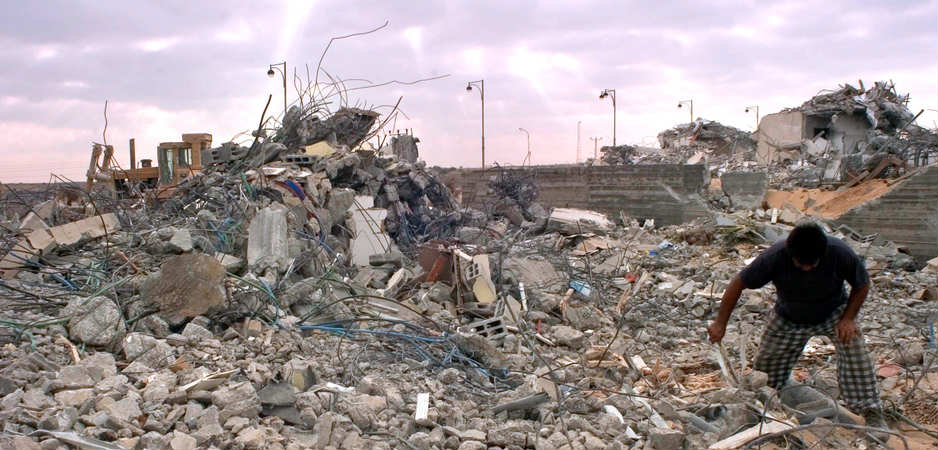
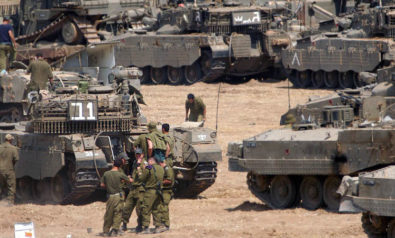
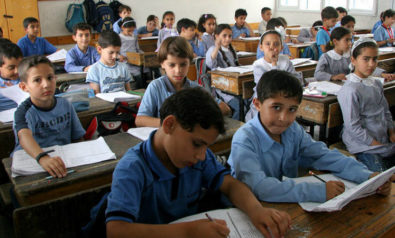

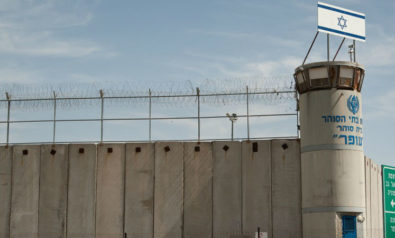
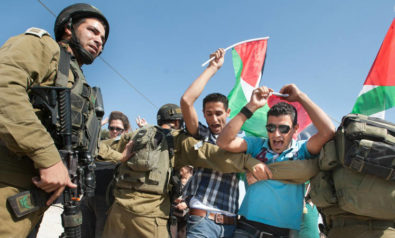
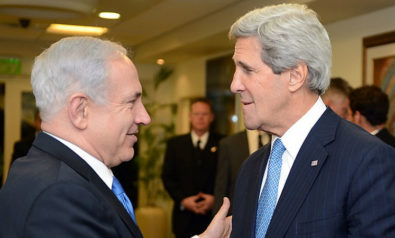
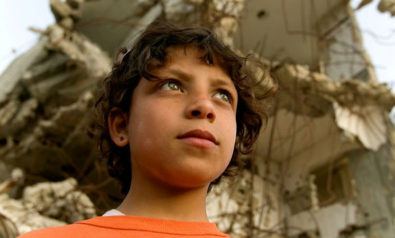

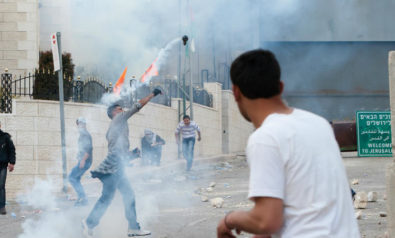
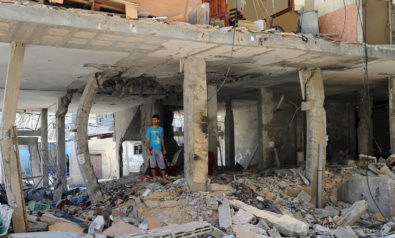
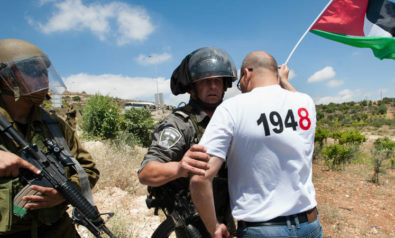
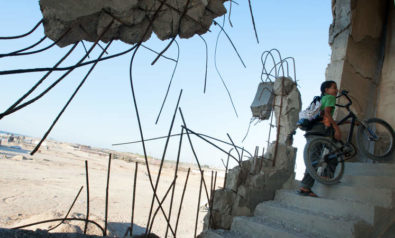

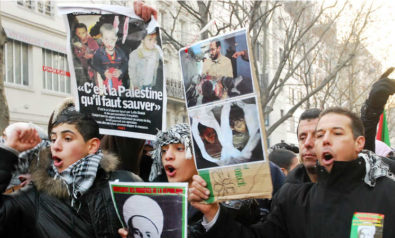
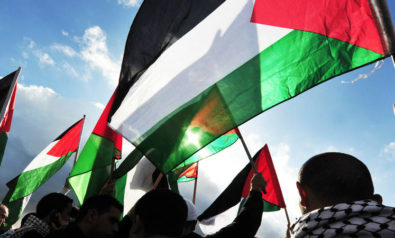

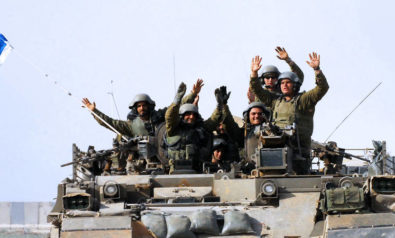
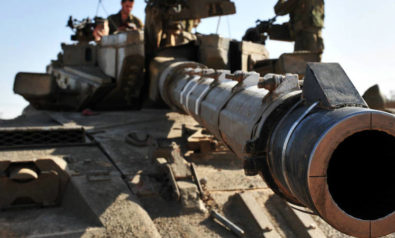
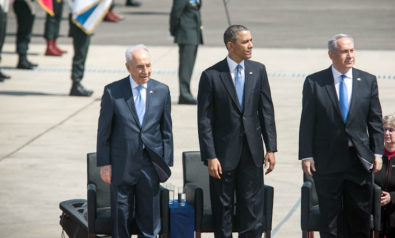
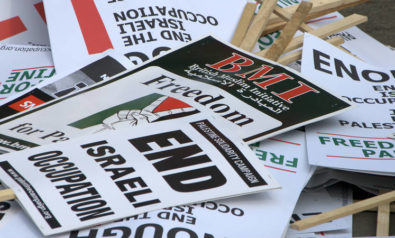
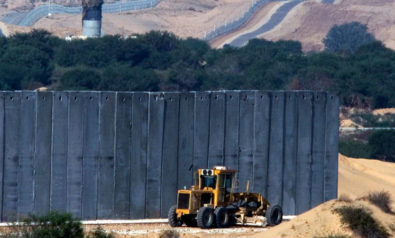
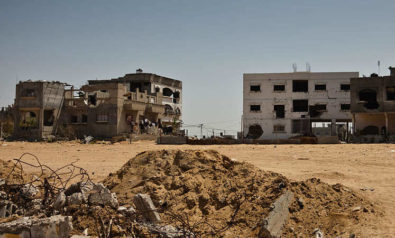

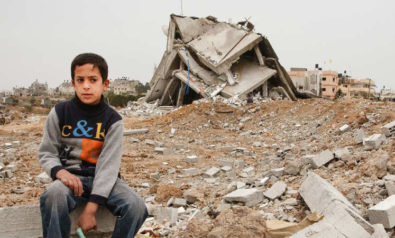
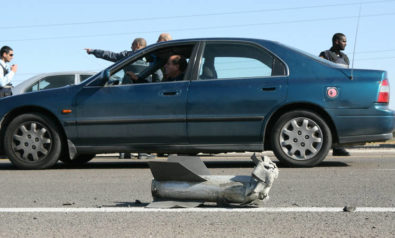
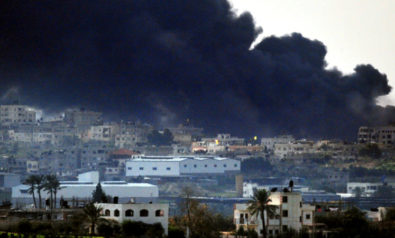
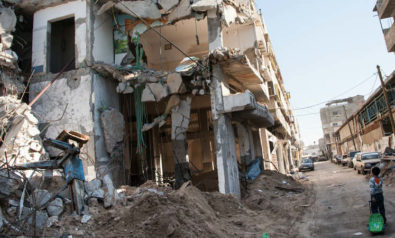
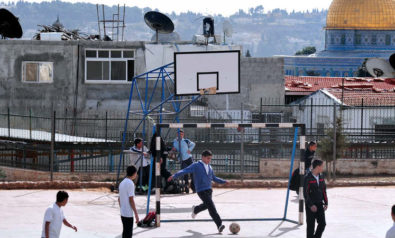

Comment
Misplaced sympathy, mainly for Gazans, leads to calls for ceasefires. But they never last because they are imposed from the outside on Israel. Hamas accepts casualties by placing its military capabilities amidst civilians so that Israel, pressured by international concern about unavoidable casualties, suffers from condemnation for defending itself against indiscriminate attacks launched at civilian population centers.
What we have on an international scale is a weakling attacking a bully, then running for parental protection so the weakling can attack the bully at another opportunity. Indeed, every ceasefire imposed on Israel gives Hamas time to rearm with more and better weapons. In the along run, it might be best to let the weakling and bully fight it out. Perhaps they need to be left alone to wage war until they both want peace.
If the international community is going to impose something on Israel, let it impose a model long proposed by many, to make a Palestinian state in the West Bank an attractive alternative to the self-inflicted dysfunctionality of Hamas. Even acting alone, the US should impose conditions on all forms of aid to Israel, first and foremost, the dismantling of the settlements. The US should pressure Israel to make a unilateral withdrawal from the West Bank, like its similar withdrawal from Gaza. Finally, the US should work to make Jerusalem a UN protectorate under US governance.